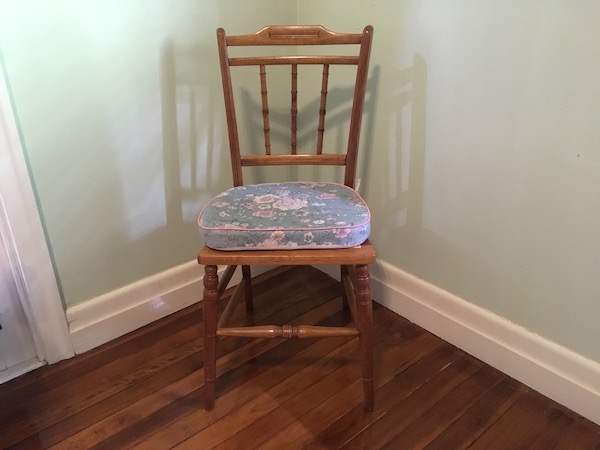My mother’s father married again late in life after becoming a widower. In turn, his new wife, Jessie, passed on an old spindle-backed chair to my mother, who in turn bequeathed it to me. After keeping it under the house for decades, I took this shabby, broken chair to a furniture restorer to get it repaired. He told me that it was probably made from imported European beech around the turn of the 19th to early 20th century. He quoted $95 to make it structurally sound and $195 for full restoration (including a hand-woven base for an extra $100). I opted for the full treatment.
Eventually I’ll give it to the next generation just as my mother did for me. Although the chair is “just” an object, and the people who made it special are now all gone, I feel I have a duty to care for such things. The duty is to, in one sense, payback the ecological debt of its construction and maintenance. The debt is also to those who have maintained it over its more than 100 years history. And perhaps there is a future responsibility to those who may yet enjoy its amenity again. I guess there is a certain ethic associated with constructed objects such as this chair, but I’m not very conversant with the literature. However, Actor Network Theorists might suggest that these debts are really the result of “inscriptions” that I (and other agents) have unconsciously overlaid onto the object. Thus becoming (if there is a sufficient group of like-thinking people) a self-sustaining network. Further, I appear to want to enrol my descendants into this way of thinking!
